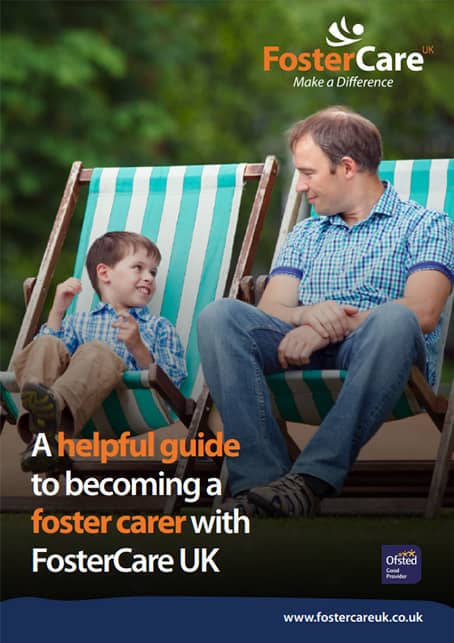


What happens when a child is taken into care?
Benefits of being a foster parent
What is a care leaver?
How to become a foster parent
How to foster a child
What are the foster care requirements
Can I choose who I foster?
Fostering with pets FAQ
How long does it take to become a foster parent?
What is the role of an independent fostering agency?
Fostering a disabled child
Tips for coping when foster placements end
Do foster carers pay tax?
What to expect in a fostering assessment
Common Fostering Challenges and Solutions
What disqualifies you from being a foster carer?
Muslim Fostering
Fostering as a single parent
Can you foster a child with a criminal record?
Can you work and foster?
Top 10 fostering myths
Can I foster if…?
Can I foster and rent?
LGBT Fostering: can I foster if I’m gay
Top transferable skills to become a foster carer
Can you foster with a mental health condition?
Christian Fostering
Sikh Fostering
Cultural Diversity in Foster Care
How to encourage foster children to read
Reasons for a child to be taken into care
Tips for coping with attachment disorders in Foster Children
Fostering vs Adoption
What happens when foster parents get divorced?
What is reunification in foster care?
How to deal with foster child bullying
A guide to the foster care handbook
Guide to fostering young children
Types of self-harm
A guide to fostering teenagers
What are the signs of depression in foster children?
Bullying is a serious matter for any child and is a significant issue in fostering. Often the trauma a child has experienced can make a foster child more vulnerable to bullying which is why you, as a foster parent, need to understand what bullying is and how to spot the signs of bullying.
As we’re at the start of a new school year, it can be a triggering time for children who’ve experienced bullying as it can bring about feelings of fear and anxiety. This guide explains how to deal with bullying whether you have concerns about how to spot the signs of bullying, what to do if your foster child is being bullied or even if you have concerns that your foster child is bullying others.
In order to understand how to deal with bullying, it’s important to understand what bullying is. Children and young people can be bullied for just being different, their race, religion, background, appearance, sexual orientation or disability. It’s important to be aware that bullying doesn’t just have to occur on the playground. Bullying can happen in lots of different ways. With the rise of social media, cyberbullying has become much more common in recent years. But, bullying can also take place at home, on the street and other places.
Bullying is always intentional, hurtful, and repetitive and results in a power imbalance. Children can have disagreements, outbursts and fallings-outs as they grow and develop their social skills but if you notice that behaviour follows this pattern it could be a sign of bullying. Some examples of bullying behaviour includes:
It can be difficult to tell if your foster child is a victim of bullying as quite often the child will not feel comfortable talking about the subject. Some of the signs your foster child might be being bullied include:
If you suspect your foster child is being bullied it’s important to emphasise to your foster child that they can trust you and to let them know that you are there to support and care for them. It’s important not to act rashly and to handle the situation carefully. Some of the do’s and don’ts if you suspect your foster child is being bullied include:
Many foster children have had a traumatic past, and they may have been exposed to bullying in the past, sometimes this can cause them to exhibit bullying behaviour themselves as a coping mechanism. And, although it’s easy to understand why this might happen it’s important not to justify bullying behaviour. Some of the ways to deal with bullying if your foster child is bullying others include:
Start a dialogue: Speak to your foster child, and don’t forget to listen too. Encourage your foster child to come to a conclusion about how to resolve the situation.
Speak to your foster child’s social worker: Make sure your foster child’s social worker is aware of the situation.
Here at FosterCare UK, we approach fostering with a therapeutic approach at the forefront. Dealing with bullying quickly and with a therapeutic response can help reduce the chance of long-term damage. We also offer complete training and support for foster parents to make sure you are completely prepared to care for your foster child or young person. If you would like to find out more, please do not hesitate to contact our helpful team today.
If you’ve got any questions or would like to find out more about fostering with Capstone, fill out the form below.
An experienced fostering advisor from your local area will then be in touch.

Start the conversation today. Our team of friendly advisors are on hand to answer any foster care questions you may have. We can offer you honest and practical advice that can help you decide if becoming a foster carer is the right path for you.


